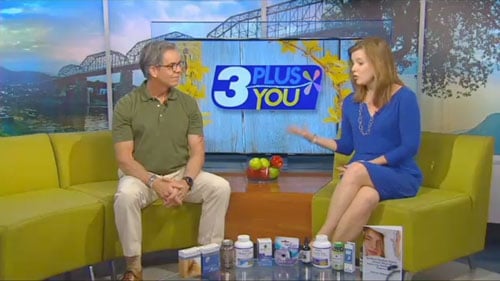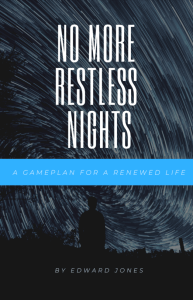Chronic sleep deprivation is one of today’s most critical health issues.
Did you know that withholding sleep is one of the most common torture methods in many countries? The reason is that a severe lack of sleep can make the mind psychotic and drive prisoners completely insane. Not that long ago, during my many years of insomnia, I used to feel on the verge of knowing how these prisoners may have felt. Thankfully, I now know how to regulate my sleep in order to create a quality daytime life that escaped me for years. I believe strongly that long-term lack of sleep is most likely more harmful than smoking cigarettes or eating unhealthy foods. The information below comes from decades of study, personal exploration and counseling thousands of others on improving sleep. This list is not meant to be something you pick and choose from. It is necessary to embrace the majority of these to break the shackles of insomnia. The cycle of body and brain chemistry is tied into a rhythm and one main goal is to regain the internal rhythm that you had in more youthful days.
Click here to watch my interview on 3 Plus You about Chronic Sleep Deprivation
Essential steps for chronic insomnia:
Sleep in complete darkness, or as close to it as possible. The tiniest bit of light in your room can disrupt your internal clock and your pineal gland’s production of melatonin and serotonin. Even the glow from your clock radio could be interfering with your sleep.
Close your bedroom door, and get rid of night-lights. Refrain from turning on any light at all during the night, even when getting up to go to the bathroom. Cover up your clock radio. Cover your windows—I recommend using blackout shades or drapes. All life evolved in response to predictable patterns of light and darkness called circadian rhythms. Modern day electrical lighting has significantly betrayed your inner clock by disrupting your natural rhythms. Little bits of light pass directly through your optic nerve to your hypothalamus, which controls your biological clock. Light signals your brain that it’s time to wake up and starts preparing your body for action.
Tip: there is a special night light that you can order online that does not emit the blue wavelength which is the part that primarily stops melatonin. Blue light rays need to be avoided two hours before bed.
Click here to view the 7 other steps for solving chronic insomnia and download the free E-Book
Lifestyle suggestions that enhance sleep:
- Reduce or avoid as many drugs as possible. Many drugs, both prescription and over-the-counter, may adversely affect sleep. In most cases, the condition causing the drugs to be taken in the first place can be addressed by following guidelines from experts in holistic medicine.
- Avoid caffeine. At least one study has shown that, in some people, caffeine is not metabolized efficiently, leaving you feeling its effects long after consumption. An afternoon cup of coffee or tea will keep some people from falling asleep at night. Be aware that some medications contain caffeine (for example, diet pills).
- Avoid alcohol. Although alcohol will make you drowsy, the effect is short-lived. You will often wake up several hours later, unable to fall back asleep. Alcohol will also keep you from entering the deeper stages of sleep, where your body does most of its healing. I do enjoy a glass of Tequila, which means I drink it with supper and no later than 7 pm.
- Make certain you are exercising regularly. Exercising for at least 30 minutes per day can improve your sleep. However, don’t exercise too close to bedtime or it may keep you awake. Studies show exercising in the morning is the best if you can manage it.
- Lose excess weight. Being overweight can increase your risk of sleep apnea, which can seriously impair your sleep. Please refer to my E-Book, Are you Sick and Tired of Being Sick and Tired to learn how to lose weight and feel great! Click here for a free copy.
- Avoid foods you may be sensitive to. This is particularly true for sugar, grains, gluten, and pasteurized dairy. Sensitivity reactions can cause excess congestion, gastrointestinal upset, bloating and gas, and other problems.
- Have your adrenals checked by a natural medicine clinician. Scientists have found that insomnia may be caused by adrenal stress.
- Avoid MSG. There are many downloadable apps that check pulse rate simply by putting a finger on the back of the phone. This can be very useful as a detective in picking up which foods are stimulating you without your knowledge. Check before and one hour after every meal to see if pulse rates elevate.
- If you are menopausal or perimenopausal, get checked out by a physician. The hormonal changes at this time may cause sleep problems if not properly addressed. Many options are available in natural hormone management.
- Fear is most likely the deepest reason for chronic insomnia. Just imagine an animal in the jungle. Don’t you think on some level it is constantly aware of sounds around it in order to be ready to run from danger? Our fears are just as realistic bills, health, weather, kids, news and the list goes on and on. The difference is those wild animals get enough sleep because they nap anytime throughout the day so they regain any lost sleep from the night before. However, the major difference between us and animals is the worries we have at night seldom result in solutions other than insomnia. Utilizing methods such as EFT, (emotional freedom technique) meditation, slowing the thinking mind down before bed and realizing all the imagined ghosts that have chased us all our lives is a source of our issue. Finding true peace within our consciousness will always bring improved sleep. I once heard someone say that they know for sure worry works because almost nothing they worried about ever came true!
- Increase your melatonin. Ideally, it is best to increase levels naturally with exposure to bright sunlight in the daytime (along with full spectrum fluorescent bulbs in the winter) and absolute complete darkness at night. If that isn’t possible, you may want to consider a melatonin supplement. In scientific studies, melatonin has been shown to increase sleepiness, help you fall asleep more quickly and stay asleep, decrease restlessness, and reverse daytime fatigue. Melatonin is a completely natural substance, made by your body, and has many health benefits in addition to sleep. I recommend starting at only 1/2 mg for the first week and realize this product is to reset the internal sleep clock and is not a sleeping pill. After one month you can experiment by going up an additional 1 mg each week. Headaches and bizarre dreams are a sign of excessive melatonin. The majority of all individuals have tried melatonin but with little success. This is generally because they used way too high of a dose and did not understand that its real purpose is to reset the sleep rhythms within the body and not to knock them out like a drug.
My additional little helpers along the way.
When I experience temporary episodes of insomnia, I always take a supplement to assist me in achieving quality sleep. However, sometimes nothing seems to work. I find using one of the following can take the edge off and allow for improvement:
- Sleep formulas containing herbs
- Kava (powder)
- Theanine (capsules)
- Magnesium Powder
- GABA
- CBD from hemp
- Essential Oils
- Valerian
- Poppy Seed
I personally must double the label dose of these items in order to receive results. On nights I go to sleep perfectly fine yet find myself awakening and need something I will have GABA laid out on the counter with water. I take 1000mg and it rarely fails to put me back into a deep sleep within 30 minutes. GABA has become my most utilized and recommended product because it has zero side effects and does not make anyone groggy the next day.





